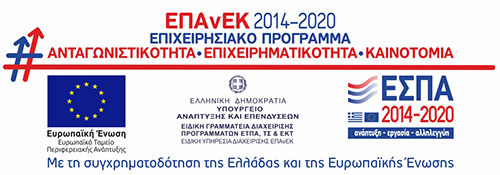Cookies Policy
This Policy applies to the INGENIO website, www.ingenio.gr.
By browsing the website, the user agrees to the use of cookies in accordance with this policy and the website’s terms and conditions of use. This written information constitutes an extension of the informative banner on the use of cookies that appears when users first log in to the homepage. The Cookies Policy is part of the Website’s terms of use and may be amended from time to time. We recommend that you check the Cookies Policy regularly to keep up to date with any changes.
1. What are Cookies?
1.1 Cookies are small text files that a website stores on your computer or mobile device when you visit it.
1.2 The information stored on the User’s computer may contain information such as the pages visited by the User, the date and time of the visit as well as a random and unique identification number of the User. Under no circumstances do cookies contain personal information or information that would allow anyone to contact the website visitor by telephone, e-mail, etc. In addition, by using cookies there is no access to documents or files on your computer.
2. Types of cookies
2.1 Depending on the time they remain stored on your device, cookies are divided into “session cookies” and “persistent cookies”.
“Session cookies” are stored on your device the moment you visit the Website and are automatically deleted after you close your browser (e.g. Google Chrome, Microsoft Edge, Mozilla Firefox, Apple Safari, DuckDuckGo, etc.).
“Persistent cookies” are stored on your device the time you visit the Website and remain stored after you close your browser. The “persistent cookies” will be automatically reactivated when you open your browser and browse the Internet.
2.2 Cookies can also be divided into first-party and third-party cookies.
First-party cookies are cookies installed by the website visited by the user (in our case they are the cookies installed by our website).
Third-party cookies are cookies set by a website (domain) other than the one visited by the user. If the user visits a website and a different company installs a cookie through that website, that cookie will be a third-party cookie (such as Facebook, LinkedIn and other social networks).
3. How do we use cookies?
3.1 On the INGENIO website we use functional and statistical cookies in order to:
- the storage of visitors’ preferences
- to improve the functionality of the website
- collecting analytical data (on user behavior).
3.2 Visitor preference cookies
These are placed by us, can only be read by us and remember whether you have accepted (or rejected) the site’s cookie policy.
3.3 Functionality improvement cookies
These are session cookies, which are deleted as soon as you close your browser.
3.4 Cookie Analytics
We use these purely as part of internal research into ways to improve the service we provide to all our users.
3.5 All above cookies simply assess how you interact with our website – as an anonymous user (the data collected does not personally identify you). Also, this data is not shared with third parties or used for any other purpose. However, you have the right to refuse this type of cookie via the special cookie box on the first page you visit.
4. General information on how to manage cookies.
4.1 Delete cookies from your device.
You can delete all cookies already on your device by deleting your browser history. This will delete all cookies from all the websites you have visited.
Be aware, however, that some saved data may be lost (e.g. saved login details, website preferences).
4.2 Blocking cookies
Most modern browsers allow you to configure them to prevent cookies from being placed on your device. In this case, however, you may need to manually adjust certain preferences each time you visit a website or webpage. In addition, some services and features may not work at all (e.g. linking to profiles).
More information about the collection and management of your data can be found in the INGENIO website data use policy.





